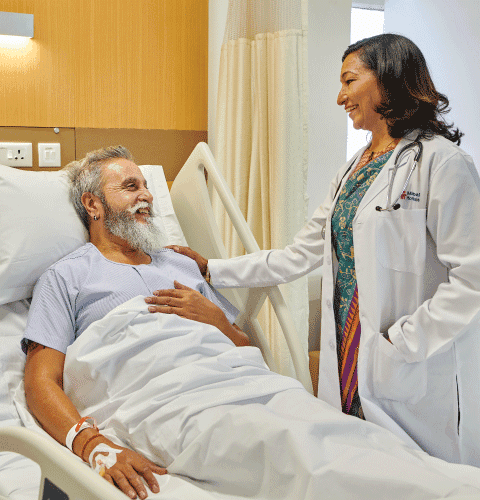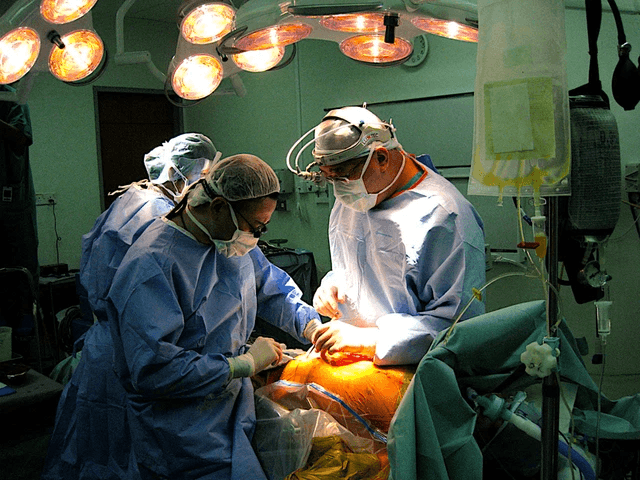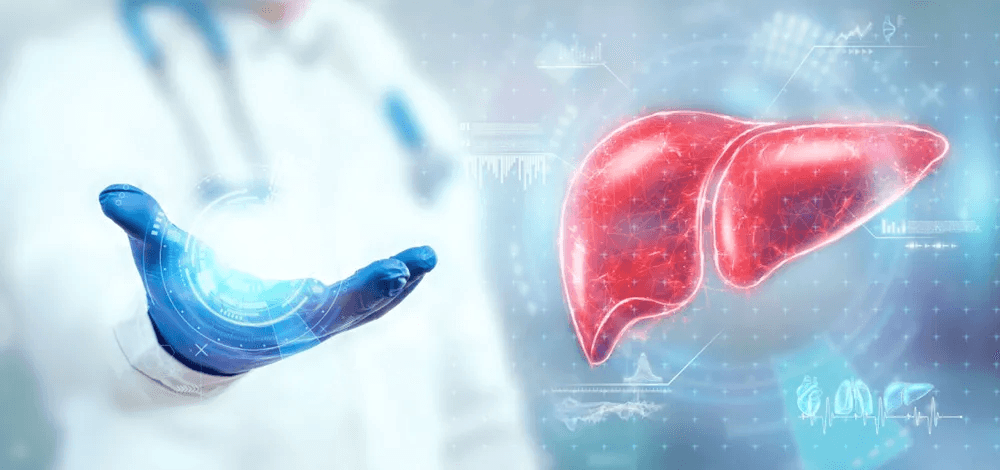LIVER TRANSPLANT
Understanding Liver Transplantation
A liver transplant is a surgical procedure that removes a diseased liver and replaces it with a healthy liver from a donor.
Liver transplantation is considered when a patient’s liver is failing and other treatments are no longer effective. It’s a complex procedure that requires extensive evaluation, careful donor matching, and lifelong follow-up care.
Dr. Sanjay Kumar Yadav has performed over 500 successful liver transplants and works with a multidisciplinary team to ensure the best possible outcomes for patients.



Types of Liver Transplants
Living Donor Transplantation
Portion of liver from a living donor
A procedure where a portion of a healthy person's liver is transplanted into a patient with liver failure. The liver’s unique ability to regenerate makes this possible.
Benefits:
- • Reduces waiting time
- • Planned procedure timing
- • Better tissue matching possible
- • Excellent outcomes
Donor Evaluation
Comprehensive assessment process
Potential living donors undergo extensive medical, psychological, and social evaluations to ensure they are suitable candidates and to minimize risks.
Evaluation includes:
- • Blood type compatibility
- • Comprehensive health assessment
- • Liver volume and anatomy evaluation
- • Psychological evaluation
Recovery Process
For both donor and recipient
After donation, the liver begins regenerating immediately. Most donors return to normal activities within 4–6 weeks, while recipients begin their recovery journey with the new liver portion.
Timeline:
- • Hospital stay: 5–7 days for donors
- • Full liver regeneration: 8–12 weeks
- • Return to work: 6–8 weeks
- • Long-term follow-up: Minimal
The Transplantation Journey
1. Initial Evaluation
Comprehensive assessment to determine if a patient is a suitable candidate for liver transplantation. Includes medical, psychological, and social evaluations.
- Placement on the national transplant waiting list
- Regular monitoring of health status and MELD score updates
- Management of complications of liver disease
- Exploration of living donor options if appropriate
1. Initial Evaluation
Comprehensive assessment to determine if a patient is a suitable candidate for liver transplantation. Includes medical, psychological, and social evaluations.
- Placement on the national transplant waiting list
- Regular monitoring of health status and MELD score updates
- Management of complications of liver disease
- Exploration of living donor options if appropriate
2. Waiting Period
For deceased donor transplants, patients are placed on a waiting list and prioritized based on medical urgency. Living donor evaluation may proceed in parallel.
- Complete medical history and physical examination
- Blood tests, imaging studies, and other diagnostic procedures
- Evaluation by transplant surgeon, hepatologist, and other specialists
- Psychological and social support assessment
- Complete medical history and physical examination
- Blood tests, imaging studies, and other diagnostic procedures
- Evaluation by transplant surgeon, hepatologist, and other specialists
- Psychological and social support assessment
2. Waiting Period
For deceased donor transplants, patients are placed on a waiting list and prioritized based on medical urgency. Living donor evaluation may proceed in parallel.
3. Transplant Surgery
The surgical procedure to remove the diseased liver and implant the donor liver. Typically takes 4–12 hours depending on complexity.
- ICU stay for close monitoring (typically 1–3 days)
- Transfer to regular hospital room for continued recovery
- Initiation of immunosuppressive medications
- Monitoring for complications and graft function
3. Transplant Surgery
The surgical procedure to remove the diseased liver and implant the donor liver. Typically takes 4–12 hours depending on complexity.
- ICU stay for close monitoring (typically 1–3 days)
- Transfer to regular hospital room for continued recovery
- Initiation of immunosuppressive medications
- Monitoring for complications and graft function
4. Hospital Recovery
Initial recovery in the hospital, typically lasting 7–14 days, focusing on stabilization, medication management, and monitoring for complications.
- Removal of the diseased liver
- Implantation of the donor liver
- Vascular and biliary reconstruction
- Intensive monitoring during and after surgery
- Removal of the diseased liver
- Implantation of the donor liver
- Vascular and biliary reconstruction
- Intensive monitoring during and after surgery
4. Hospital Recovery
Initial recovery in the hospital, typically lasting 7–14 days, focusing on stabilization, medication management, and monitoring for complications.
5. Long-term Follow-up
Lifelong monitoring and management to ensure the health of the transplanted liver and address any complications or medication side effects.
- Regular clinic visits and laboratory tests
- Immunosuppression management and adjustment
- Monitoring for rejection and other complications
- Lifestyle modifications and preventive care
5. Long-term Follow-up
Lifelong monitoring and management to ensure the health of the transplanted liver and address any complications or medication side effects.
- Regular clinic visits and laboratory tests
- Immunosuppression management and adjustment
- Monitoring for rejection and other complications
- Lifestyle modifications and preventive care
